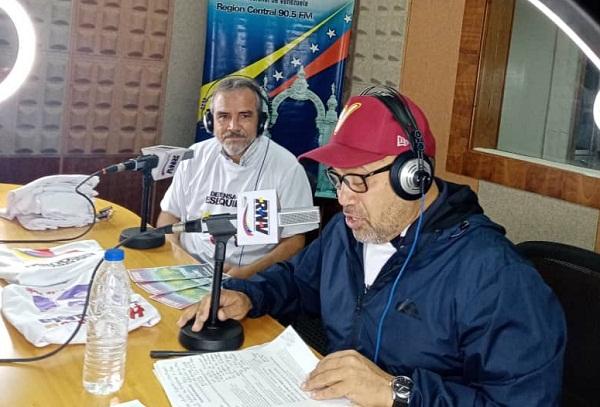This Thursday’s program of «Bicentenary Voices» was dedicated to the defense of the Essequibo territory, from a historical perspective, the development of current events and what will happen in the future with this territorial space.
The host of “Voces Bicentenarias”, José Ávila, gave a historical account in which he mentioned important agreements that since 1494 acknowledge the limits of what is now the Bolivarian Republic of Venezuela, such as the agreements between Venezuela and Portugal, the treaty of Münster, the treaty of Utrecht, the creation of the General Captaincy of Venezuela in 1777, the creation of the map of the Captaincy in 1786 and, later, the reaffirmation of these limits in the Declaration of Independence of Venezuela.
“From this perspective there is no legal or historical doubt that this territory is Venezuelan,” stated Ávila, while highlighting the illegal actions that have occurred around Essequibo such as the irritated Paris arbitration award “which was declared null, for That is why the Geneva agreement appears and that is why the irresponsible President of the Federative Republic of Guyana goes to an Award that has already been annulled,” he explained.
For his part, historian Ángel García stated that since Spain began the invasion process in this territory until the fourth decade of the 19th century, there were never doubts about the border issue, where this space was always part of Venezuela.
«Until the decade of the 30s of the 19th century there was no doubt about Venezuela’s ownership of these territories, including England, the issue began to get complicated when England hired the services of Robert Schomburgk to establish limits, and this man, according to exceeding the instructions given to him, made a first demarcation, which was protested by Venezuela, with which England aspired to control in a straight line 4,900 square kilometers west of Essequibo.»
García added that Venezuela and Guyana must adhere to the 1966 Geneva agreement, which sets an important legal precedent in England’s acceptance of reviewing the arbitration award and its sentence, opening the door for Venezuela to demonstrate and present the corresponding allegations. .
In this sense, both José Ávila and Professor Ángel García invited all the people to participate in the consultative referendum that will be held on December 3.
